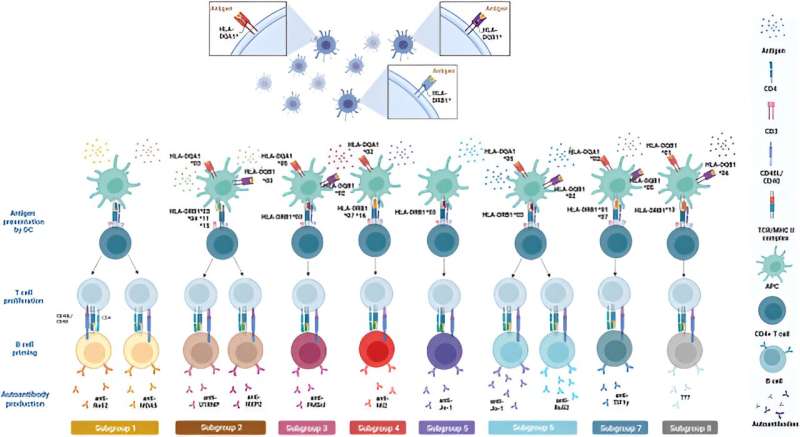
In a new study from Karolinska Institutet, the researchers found that combining information from blood markers and genetics reveals distinct subgroups of patients with myositis, which may help to improve disease classification and treatment. The study was published in eBioMedicine.
Myositis is a group of rare autoimmune diseases often characterized by muscle inflammation, but it can also affect different body organs such as the skin, lungs and joints. Myositis can manifest very differently from one patient to another, making it challenging to diagnose, classify and treat effectively.
The study results showed that myositis could be grouped into eight clusters of patients by combining information from blood markers, called autoantibodies, and genetics, specifically genetic variants in the human genome’s major histocompatibility complex (MHC) region. These findings suggest that distinct disease mechanisms may be at play in those different subgroups. This novel approach to myositis subgrouping could improve myositis classification and lead to better management of these challenging diseases.
The study included 1,348 patients with myositis from five countries in Europe. The researchers determined the occurrence of 14 myositis-specific or myositis-associated autoantibodies and the genetic variants from the human leucocyte antigen (HLA) genes in the MHC, which are relevant in the immune system. Further, they established a profile of autoantibodies to group the patients and then evaluated whether those subgroups differed in their genetics and clinical manifestations.
The next step is to explore whether those subgroups are clinically meaningful by comparing their clinical outcomes (e.g., disease severity, treatment response, or mortality) and looking at other genetic variants that might be important to elucidate disease mechanisms. Similarly, exploring mechanistic differences between those different subgroups will be relevant.
More information:
Valérie Leclair et al, Distinct HLA associations with autoantibody-defined subgroups in idiopathic inflammatory myopathies, eBioMedicine (2023). DOI: 10.1016/j.ebiom.2023.104804
Journal information:
EBioMedicine
Source: Read Full Article